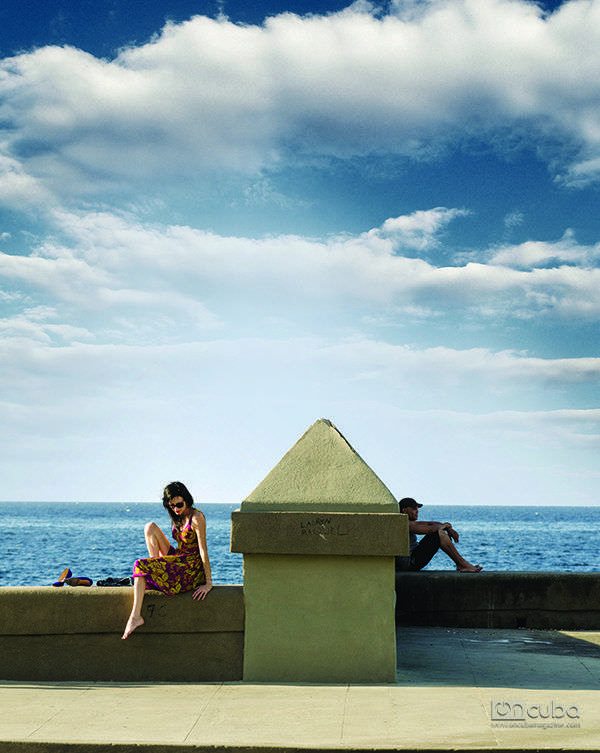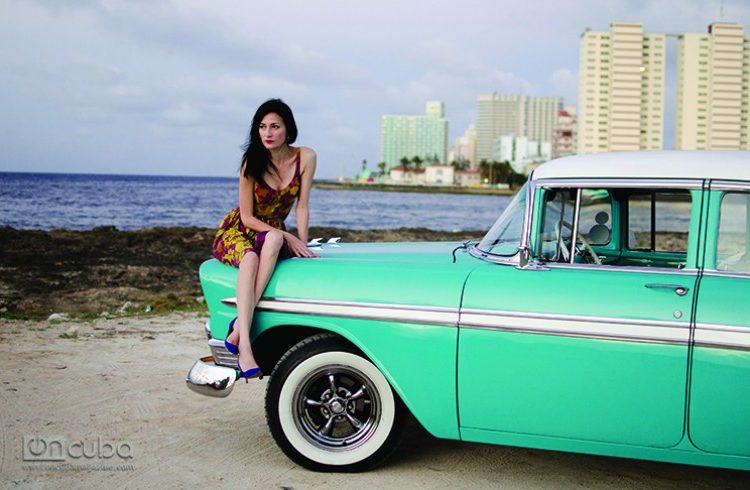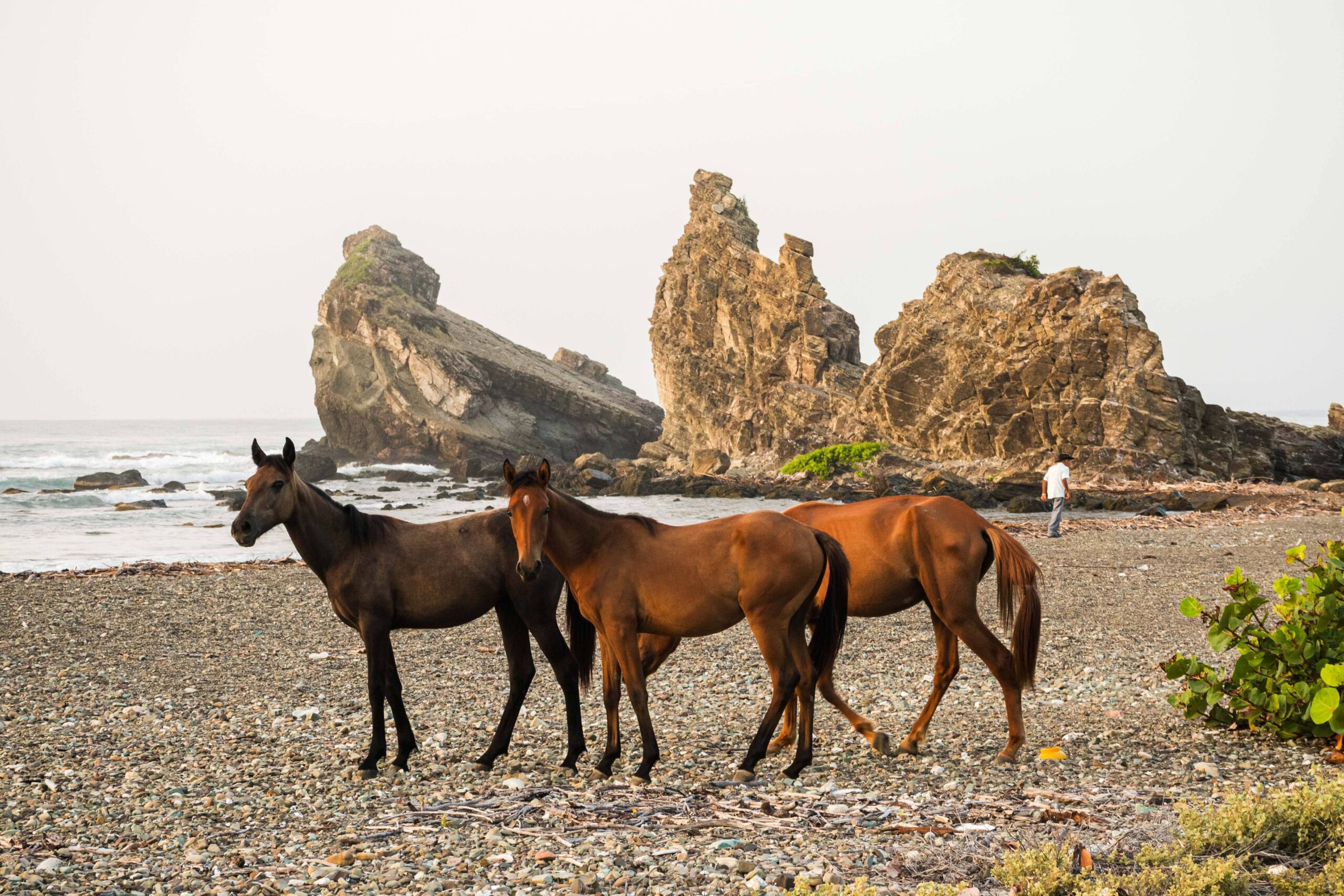She is a singer, actress, and philanthropist, and she always introduces herself as CuCu Diamantes. They say she has the “tumbao” of Celia Cruz, the intensity of La Lupe and the magic of Frida Kahlo. In music, she has worked with a diversity of artists, including Carlinhos Brown, Vico C and Fatboy Slim. Under the direction of actor/director Jorge Perugorría, she starred in the autobiographical film Amor crónico (Chronic Love). She was part of the fusion band Yerba Buena, led by her husband, the well-known producer Andres Levin, and a few years ago, she began a solo journey with her Grammy-nominated album CuCuland. She lives in the “Republic of Manhattan,” as she likes to call that island: “It is like the United Nations, because of all the cultures it brings together, and what you learn.” In Cuba, CuCu became better known after appearing in the 2009 Peace without Borders concert, and in November of last year, she, Levin and Perugorría organized the first TEDxHabana, under the slogan “InCubando ideas.” Now she is busy preparing the second of these events.
I don’t like labels because I consider myself a student of life, a woman under construction. Every day is part of who I am and I learn a lot. I think of myself as an eternal apprentice.
Cucu has been compared with La Lupe, Celia Cruz, and Moraima Secada and her music is a fusion of contemporary and traditional styles. What other influences have helped to form the CuCu we know today?
Being compared to all of those greats—I don’t think I even come close to them—is really tremendous praise for me, and at the same time, it’s a commitment. I listen and nourish myself from those great Cuban women singers, and also Graciela, who in the 1950s was one of the best-known Cuban singers in the United States. She and her brother Machito had the most successful big band of their time, playing Latin jazz. I’ve also been influenced by Mario Bauzá, Chico O’Farrill, and Chano Pozo, and I’ve leaned a lot toward Puntilla, one of the great Cuban rumba players who immigrated to New York, specifically to the Bronx. There were also Patato Valdés and Totico, other important rumba musicians who taught me a lot when I first arrived in New York more than 20 years ago. I am influenced essentially by unusual music legends, not the obvious ones that everybody knows.
What did Yerba Buena mean for your career?
We have not reunited again because we are all working on our solo careers, like Descemer Bueno and Pedro Martínez, who are doing really well. Yerba Buena was a university of total eclecticism. A very rich time, and one of immense learning and growth.
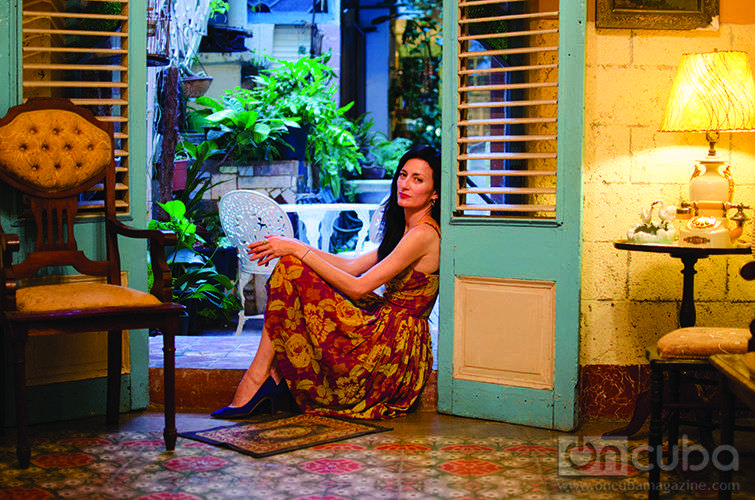
Your compositions are revealing; they deal with personal thoughts and feelings and talk about your life. With whom do you compose, your angels or your demons?
I think with a little bit of both, because as artists, we have something of both for performing and creating our work. My compositions might be a result of my lifestyle or stories that my friends tell me. Everything that inspires me is in my songs, from a painting to this or that experience of a friend. I don’t think of myself as a professional composer, the kind that write made-to-order songs. A song that I’ve written might be used by somebody who wants to sing or play it. But for me, it’s about connecting with the magic of the creative moment. I can be inspired by a story that a taxi driver tells me, or the sorrows of a neighbor, full of popular philosophy…. I am nourished by ordinary people, and I manage to combine it all together with my roots. The world is local; what is universal is local; wherever I travel, I feel local, I feel like I belong there, too. Because the world is so universal, it is local in the end. I am a citizen of the world. In my career, I want every one of my albums to reflect my versatility and my passion for life and art.
In one sequence from the film Amor crónico you mention that you are too much of a Havana woman to live in New York and too much of a New York woman to live in Havana. Do you still feel like that?
That sentence comes from a verse by a poetess from Havana (Lourdes Casal) who died in New York. I identified with that statement during that period because it was a time in my life when I did almost 900 concerts with Yerba Buena all over the world in seven years, and I didn’t come to Cuba much because my schedule was so tight. I was away from my roots, those roots that are always being reinvented here. When I came back after living in New York for such a long time, I felt different; I had
gotten used to life there. I faced the immigrant’s problem: you don’t fit here, but you’re not completely inserted there, either. It was a phase that I’ve gotten past. Now I feel local wherever I go. Spiritually, I’ve crossed the border. Recently I screened the film in Rome, where I studied, and I felt like I was from there, too. I love
melancholy, but not nostalgia for the past, because there is a present in development and you have to experience it; if you live in the past you stagnate. I love being surrounded by young people and being infected by their energy, tendencies, and tastes. It’s refreshing, because these are generations that are being illuminated in a different way, and I love for them to illuminate me.
I am illuminated just as much by the wise people of the past as
I am by the new ones of tomorrow.
What was your age when you left Cuba?
I left when I was 17, almost 18. After the death of my grandmother, who did not have any schooling but was very wise about life, very street-smart, I stayed with my aunt, who is gay and very reserved. She has had the same partner for 30 years. She never talked to me about her sexuality because that was not important to me. She raised me and taught me how to be well-mannered. She also taught me how to be tolerant, to respect everyone’s sexuality and religion. I find a fascination and an essence to all religions, and prefer to embrace them as one, without divisions. I’m very spiritual and I really believe in energy, that it’s the most powerful religion that you can pass on.
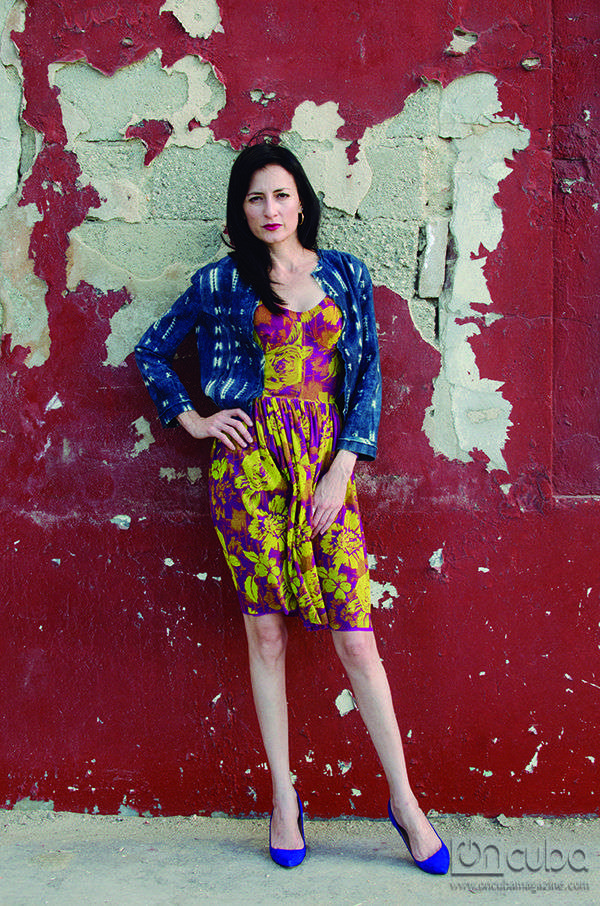
What does it mean for a Cuban woman to live in a city as cosmopolitan as New York?
When I left Cuba I went to live in Italy. I finished studying Restoration and Art History in Rome, and my option was to go to Barcelona as a restoration assistant, to learn at Gaudi’s Sagrada Familia. My passion was music. I sang back-up vocals for fun in a salsa group in Rome. Horacio “El Negro” Hernández, the famous drummer and a close friend, who shared the stage with me during those years, told me, “If your passion is music, then let’s go to New York.” So I made it there, as I say in the movie, out of my love for music. I worked as a waitress, and I did drag shows with some of the most iconic transvestites in the United States—Sofía Lamar and Amanda Lepore—to pay the rent. They taught me how to use makeup and to dress. That was a real
learning experience for me onstage. I dressed in drag and did a whole show, which is why Pichi (Perugorría) offered me the role of a transsexual in his film, Fátima. It is a very artistic world, and it was good for me, because I experienced the most underground side of New York. I learned a lot there about electronic music, disco and house; I was nourished by the whole artistic aspect of what it means to get into another person’s skin. I still go out with them…it is a world that I’m never far away from because I like being up-to-date in everything. But I am a Cuban woman; it’s like a virus that never goes away, and I have an incurable chronic love for Cuba.
You have been described as an icon of vintage fashion and the muse for several designers. How much importance do you place on your image?
My philosophy for composing songs is the same one I use for clothing: I reinvent what’s already been done. I love vintage,
and my appearance has gotten the press’s attention, like what happened initially with Amy Winehouse. Plus, for my shows I always have the collaboration of designer friends who supply me with pieces that I end up adapting to my own style. I say that in terms of image, I function as a woman under construction. The obvious bores me, and I find the 1950s ladies’ look fun and elegant. I wear designs by Ángel Sánchez and use jewelry by Rodrigo Otazú, an Argentine designer who began making his career in Europe and is very much in style all over the world. I was one of the first to trust in him, because I like encouraging new
talents and being one of the first to discover them. Now I’m doing another reinvention of my look.
The philanthropic work that you do with your husband is very interesting. What are the main causes that you support?
Andrés and I have Music Has No Enemies, a nonprofit organization that carries out a lot of philanthropic projects for the needy. We work in hospitals with child cancer patients, taking the creative musical process to them, because it has been proven to be healing and it brings a lot of joy. The passion of creation is therapeutic. We help immigrant children, who are the object of teasing because of their accents and who barely see their
parents, who to achieve the so-called American dream have to work up to three jobs and don’t have time for their kids. There are girls who commit suicide, and to try to prevent this, we seek them out and talk to them, show them that life is more than that. We take them to the studios and give workshops so that they can develop their passions and vocations, and achieve their purpose in life and don’t become depressed. We raise funds to help them, and also for other who are sick, such as AIDS patients. We also support the struggle against gender-based violence and discrimination. We support a number of social causes, a lot of them, but you can always do more. But there we are, and we place our efforts at the service of humanity. That fulfills me, it makes me come out of the bubble that you live in sometimes, and life is better when you help people who really need it. I come from a humble family and I understand it better than anybody, which is why I’m more committed to all of this. We want to start doing things in Cuba, too: go to hospitals and offer our support to the sick and needy.
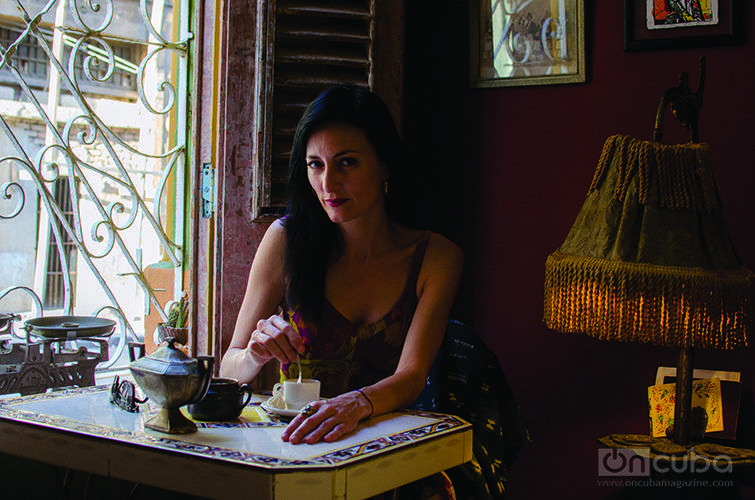
Let’s talk about Salmón, the character you play in Fátima, Perrugoría’s latest film, in which you also sing.
He fell in love with that story by Miguel Barnet, as did I. When he decided to make it into a film, he told me “You are a character in that film.” I told him that there was no way I could play a man. After hearing some of my stories—because we’re very good friends—Pichi proposed my character. We’re a family united by art and ideas; but even though we share that, he had me do an audition for the part of Salmón, Fatima’s transsexual friend who has had an operation, which is why I use my own voice. I prepared the part, with all of its characterization, and I got it. It was a wonderful experience to work in a Cuban film, with great actors like Mirtha Ibarra and Carlos Enrique Almirante. It’s a really lovely plot. It’s about the lives of Fátima and her boyfriend, viewed from a very humane perspective, not just a simple love story between homosexuals. It’s the first time that the subject has been dealt with that way in Cuban cinema. It is a love story that you can identify with, where you go through what those lovers are going through. I also composed a song for the film that I sing with the other two transvestites, Carlos and Jazz Vila. The song is called “El otro.”
What is happening with the new album that you’re working on?
A lot of musicians are involved; I don’t want to give too much away, because I don’t want to kill the magic before it starts. After five years, I am now completely immersed in this album production with Andres Levin and Alain Pérez. I haven’t decided on a title for the album yet. I have four possibilities, but nothing firm. All I can tell you is that I’m making almost all of the music videos here in Cuba.
That’s how CuCu Diamantes is: versatile, multicultural, intense, and unique. She says that after the Peace concert organized by Juanes, she was the object of hatred in certain parts of the United States because of political issues: “Because in the world, there are those who hate and those who love; I am in the group of those who love, and I don’t hate those who hate. I want to convert them into those who love,” she said at the time, a statement that was widely published in the media and social networks. She says that her age is mental: “What keeps me young is laughter; I’m between 20 and death, because your 20s are a time of real learning,” she says, laughing. Her advice: “We should all help each other and cooperate to save the world. That is the legacy that we need to pass on to the new generations.” Her biggest goal in life, like that of many, is to be happy, but hers is also “to share that happiness and to do good,” she affirms.
I am a person who needs to be in constant movement. I don’t remember how many years it’s been since I’ve taken a vacation. I lay down on the beach to rest and if I’m not planning or doing something, I get terribly bored. In Cuba I never get bored—there is always a new project and friends with whom to share ideas. That’s why I love it, and I can’t stay away from this land.”
